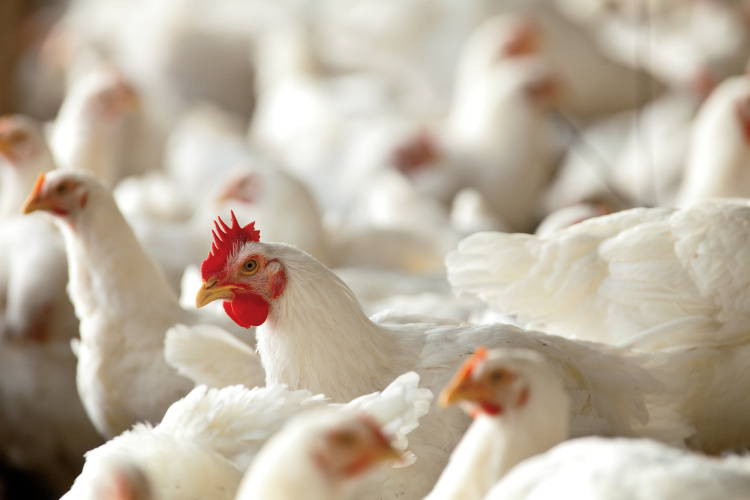Home > Georgia > Georgia Crops & Livestock > Birds of a Feather at the Georgia Poultry Lab
Birds of a Feather at the Georgia Poultry Lab

Focused on keeping the state’s poultry industry healthy, the Georgia Poultry Laboratory Network (GPLN) has a new headquarters facility in Gainesville.
The 39,500-square-foot, $13 million Georgia Poultry Laboratory processes diagnostic samples and monitors the state’s poultry flocks.
In addition, the facility is open to the public for tours by appointment, and visitors can see first-hand what takes place in the laboratory.
“We’re very excited about people coming to visit because it really opens their eyes to what we do for this very important industry,” says Dr. Louise Dufour-Zavala, veterinarian and executive director of the GPLN. “It’s a beautiful facility that we can easily show visitors because it was designed with a mezzanine, so visitors can go upstairs and watch the laboratory from above.”
The laboratory is the official state agency for the National Poultry Improvement Plan (NPIP), which is devoted to testing flocks for diseases such as avian influenza, salmonella and mycoplasma to allow for poultry movements and exports. Through the NPIP, the laboratory tests blood and other samples from the state’s flocks on a regular basis and certifies the flocks as disease-free, so the poultry products can continue to be exported across state lines and to other countries. This is especially important because Georgia because produces 1.4 billion birds each year, making it the No. 1 broiler state in the U.S. Approximately 20 percent of the state’s poultry products are exported.
“Fortunately, the poultry industry is really a proactive industry,” Dufour-Zavala says. “They use vaccination, good nutrition and environmental conditions for the birds to prevent diseases from happening, so sick flocks are rare.”
However, in the event that a disease does attack a flock, the laboratory is prepared to work with industry leaders to contain the disease.
“We are also responsible for emergency preparedness,” Dufour-Zavala says. “Should a disease like avian influenza come to Georgia, we are responsible for detecting it, confirming it and starting the response along with the Georgia Department of Agriculture.”
While Georgia has never had a chicken test positive for avian influenza, Dufour-Zavala says the state has a response plan that is updated yearly, and first responders are ready to depopulate flocks if needed.
“We have practiced these emergency plans for 10 years now,” Dufour-Zavala says, “so, if we did have avian influenza in the state, I can say that we would be prepared to respond.”



